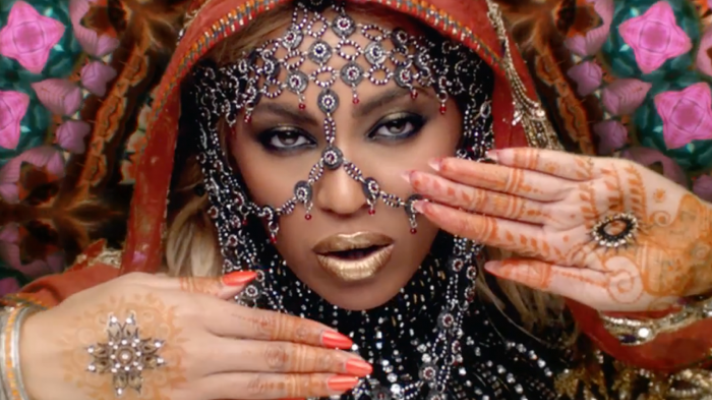Coldplay recently released the music video of their new single “Hymn for the Weekend”, featuring Beyoncé. The video was shot in Mumbai, India, during the sacred Hindu festival of Holi. The video mixes cultural and religious practices, capitalizing on existing stereotypes of India. Unsurprisingly, it has received immediate backlash, reigniting the debate on cultural appreciation vs. appropriation.
It’s fitting to begin this discussion by first defining what cultural appropriation is: a privileged group exploiting the symbols, traditions, and practices of a marginalized group for profit, often with little understanding of the latter group’s significance and history of it.
It should be understood that the cultures of people of color are not there for the taking, waiting to be exploited for the profit of the privileged group. The tragic reality is that POC have been demeaned and humiliated for speaking their own language, wearing their own clothes, and embracing their own culture.
It is undeniable that Coldplay and Bey engaged in offensive cultural appropriation.

The Western conception of India is that it is an exotic land filled with mystical levitating men, dark-skinned women, and wrenching poverty. This image erases the realities of a complex country. Coldplay’s depiction is merely a reflection of Western representation of the nation since the colonial era and it is a part of a system of representation that shapes how the Western world engages with it.
The selective images of holy men in bright orange robes, stone idols, and people celebrating Holi adds to the exoticism of India, stereotyping the multi-religious country. This exclusive focus and romanticism of Hinduism evokes an image of India as a homogenized nation, erasing the fact that India is home to a plurality of different religions. Plus, the sporadic and haphazard display of different elements and symbols of Hinduism strip them of their history and significance, reducing the entire religion to entertainment for Western consumption.
Moreover, blond-haired and green-eyed Beyoncé is shown as a Bollywood star, wearing traditional attire that isn’t native to her. Essentially, this music video reiterates universal notions of Eurocentric beauty ideals. The incredibly harmful underlying message that’s promoted is that if Indian women want to be considered attractive, they must have light skin, light hair, and coloured eyes. Sadly, the promotion of Eurocentric beauty ideals is a form of structural violence that women of colour have had to deal with since colonial times. If the director, Ben Mor, truly wanted to appreciate Indian culture, he should have picked an Indian woman to play the lead. Instead, actual Bollywood star Sonam Kapoor makes a two-second cameo, which rehashes the message that what matters more is Indian culture, not Indian people.

Unfortunately, Bey and Coldplay are not alone in their actions, nor are they the first. Pop culture has a long history of cultural appropriation and there is an ongoing trend in the music industry of using POC culture to accessorize their actions. From Katy Perry’s awful rendition of ancient Egypt in her video of “Dark Horse” to the entire Kardashian-Jenner family’s repeated incidents of cultural appropriation, it is truly an epidemic. So many artists are stealing and taking part in what many POC cannot—our own cultures.
We are seen as immigrants, fobs, and refs for taking part in our own culture, whereas they are glorified for it.
The biggest issue with cultural appropriation is that it belittles the culture and the people to whom it belongs. It trivializes an entire way of life, turning culture into an accessory to be exploited whenever it is beneficial, thereby turning the people into a voiceless, inarticulate backdrop.
And although Coldplay and Bey are talented artists and “Hymn for the Weekend” is catchy, it drives home harmful messages. It doesn’t matter whether Bey and Coldplay purposefully began this project with the aim of engaging in deliberate cultural appropriation. The artists’ intentions are irrelevant and they don’t get to decide if they are being offensive.
